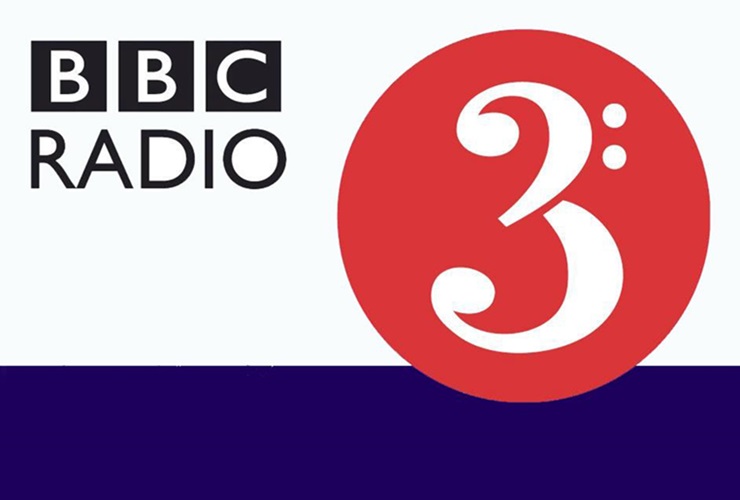
The 2023 appointment of Sam Jackson (above) as Controller of Radio 3 and the BBC Proms, signalled a significant shift in the artistic vision of two of the nation’s iconic music institutions.
It was also one that brought reactions both positive and negative towards a man who despite his relative youth had an impressive CV of achievements, notably as managing editor of Classic FM, but also as a member of the Royal Philharmonic Society Council and of The Music Commission, a year long enquiry in supporting and sustaining musical progression for all.
Since then, and whatever people may think about what he has done, he has certainly changed our appreciation of classical music over the airwaves and in the concert hall.
Full of ideas
In an interview with the Radio Times a year after his appointment he defended himself against criticism that he had ‘dumbed down’ the station after moving the long standing ‘Record Review’ to a shorter Saturday afternoon slot, whilst also taking ‘Friday Night of Music Night’ from Radio 2.
No wonder then he has talked about an inherent “snobbery against commercial radio”.
One critic went as far to say that whilst he was “full of ideas”, they felt, “the cloyingly uncritical and over-personalised style of presentation he is fostering for Radio 3, plus the arrival of ‘Unwind’, Radio 3’s new 'mindfulness' stream, makes it clear that his priorities are significantly different from what we’re used to.”
No wonder then he has talked about an inherent “snobbery against commercial radio”.
Listener figures
Soon after though he backed his desire, “to be tasked with driving Radio 3 and the Proms forward”, not by paragraphs of acclaim in the broadsheet reviews, but by the much harder currency of vastly improved listener figures.
Since his appointment more people have been tuning in to Radio 3 than ever before. Since Covid it has managed to increase its listener base for a fifth consecutive quarter with over 2.15 million people tuning in for nearly 7 and half hours a week of output.
Soon after he backed his desire, “to be tasked with driving Radio 3 and the Proms forward”, not by paragraphs of acclaim in the broadsheet reviews, but by the much harder currency of vastly improved listener figures.
All this at a time when Radio 2 lost listeners whilst commercial radio stations now account for nearly 12% more listeners than all BBC radio output.
Winning critics
Not only is he attracting new audiences at a time when the landscape of consumer choice is wider than ever before, but he is also doing it by winning over the critics too. Even ‘The Daily Telegraph’, the great bastion of middle England conservative values, welcomed the inclusion of a CBeebies, film night and Traitors Proms this year at the Royal Albert Hall.
Even ‘The Daily Telegraph’, the great bastion of middle England conservative values, welcomed the inclusion of a CBeebies, film night and Traitors Proms this year at the Royal Albert Hall.
Their music critic, Ivan Hewlett wrote that it was “the variousness of the Proms, its refusal to be neat and tidy like, say, the toffee-nosed Salzburg Festival, which guarantees its amazing power of self-renewal.”
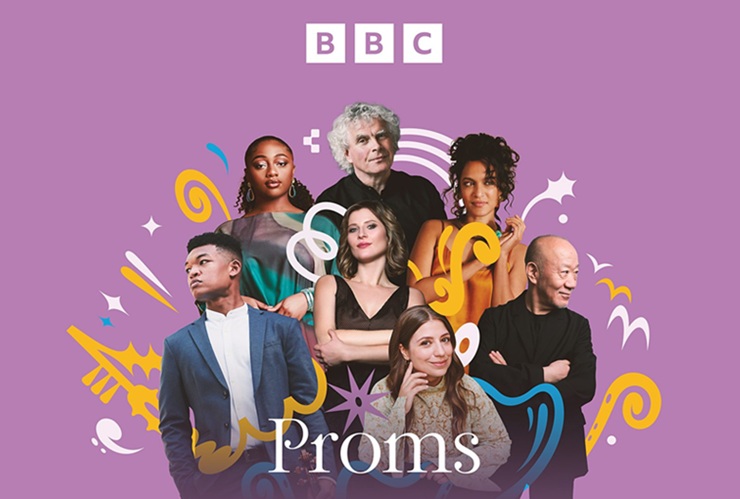
There are now 1,000 tickets at £8 per person made available for each Prom, children over the age of 7 are actively encouraged to be brought along, the late-night shows are remarkably popular, and you are no longer sneered at if you applaud a soloist or ensemble between the movements of their performances. You are even encouraged to bring a flag of your choice to the ‘Last Night’.
Work to do
There is still work to do though. Out of the 135 featured Prom composers this year in 86 concerts, only 25 are women (a decrease from 2024), providing just 27 of the 227 works (also down). There are just 11 female conductors from a rota of 51 on the podium.
Named as ‘one of the most influential and innovative people working across arts, culture and the creative industries’ the brass banding world needs to take note of Sam Jackson’s vision for renewal – as well as try to catch his ear.
However, one thing is certain. Named as ‘one of the most influential and innovative people working across arts, culture and the creative industries’ the brass banding world needs to take note of Sam Jackson’s vision for renewal – as well as try to catch his ear.
Brass Banding with Hannah Peel
All of which brings us to the recent Radio 3 series ‘Brass Banding with Hannah Peel’, and why it was an important indicator of how brass banding might once again find a niche for itself on BBC Radio output – and dare one say it, even a regular return to the Proms.
Created by youthful independent producers Reform Radio based in Manchester, it recently came to the end of its Sunday night (8.00pm) 10-part hourly run.
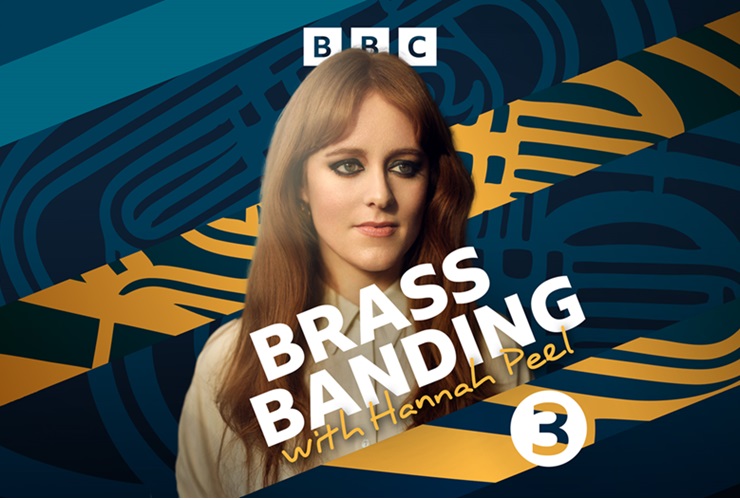
Blueprint reflection
A bit like the BBC coverage of the ‘First Night of the Proms’ from the Albert Hall, it was almost the perfect blueprint reflection of Jackson’s vision; personality-led, full of variety but light in analytical depth.
It simply asked the listener to tune in and relax with familiar voices accompanied by a little bit of ‘celebrity’ stardust – and let the music speak for itself.
A bit like the BBC coverage of the ‘First Night of the Proms’ from the Albert Hall, it was almost the perfect blueprint reflection of Jackson’s vision; personality-led, full of variety but light in analytical depth.
That was certainly great when you have Bliss, Mendelssohn, Sibelius and Vaughan-Willaims on the set-list, but even then you were grateful that Petroc Trelawny and Georgia Mann were on hand to interview Errollyn Wallen about her new work. The jury remains out on the contribution of comedian Nick Mohammed and the insight of the backstage interviewer.
Same strands
The same strands of presentational DNA were to be found on the first episode of ‘Brass Banding with Hannah Peel’.
It also featured Bliss, Nordic landscapes, female composers and a short ‘celebrity’ interview – yet failed give the listener anything but the most parsimonious information about the works, the composers or the performers. The insert interview sounded like a cut up recorded response to written questions.
Yet, despite the somewhat disembodied voice of Hannah Peel sounding more than a touch AI in its introductions (and we even got a piece written by AI in one episode) , the choice of music kept you thoroughly absorbed.
It was to be repeated time and time again over the next nine episodes – snappy titles such as ‘Trombones and Tibetan Bells’; ‘Triumphant Timps’; ‘Sweeney Todd and Acid Brass’ etc, packed with great music (from John Ireland and Lucy Pankhurst to Viskamol Chaiwanichsiri and Stuart Dempster in the second episode alone), but little in-depth explanatory context to why any of them were chosen – or at times led them in performance.
Wonderfully eclectic
Yet, despite the somewhat disembodied voice of Hannah Peel sounding more than a touch AI in its introductions (and we even got a piece written by AI in one episode) , the choice of music kept you thoroughly absorbed. The play list over the 10 episodes was wonderfully eclectic to say the very least.
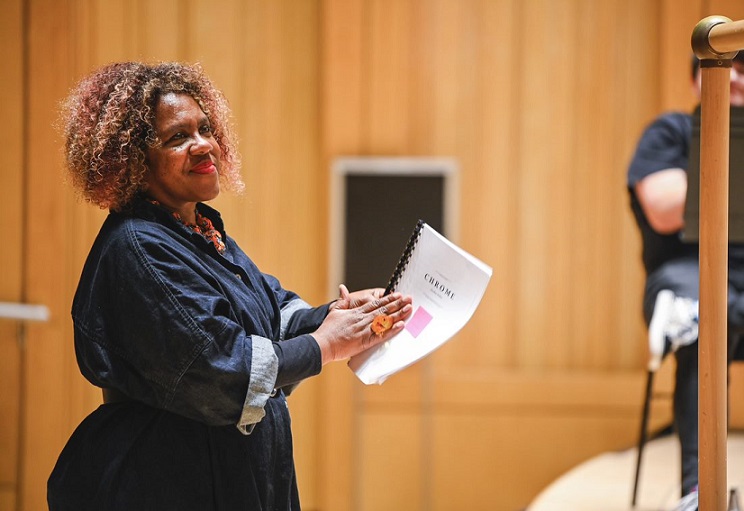
We got to hear works by Errollyn Wallen (above) and Mauricio Kagel, Vinter, Gregson, Gavin Higgins and Martin Green, Heaton, Holst, Andrea Price and Johan Johannsson, Bath, Wilby, Jounetsu Tairiku and Tim Souster, Bingham, Waespi, Naomi Styles, Shri Sriram and many more. There was music from the USA to Japan, Australia to the Arctic Circle. The performers and soloists came from far and wide too.
Pick and mix
It was the musical equivalent of the old ‘pick and mix’ counter at Woolies – a weekly bag of tasty sweets both old and new, zingy flavourings and traditional favourites, major gobstoppers and tic-tac sized mouth tinglers.
Traditionalists may long for a return of ‘Bandstand’, but that is not going to happen. He has recognised that time, tastes, age profiles and listener access have changed and moved on.
It took some getting used to, but for the more occasional ‘dip in’ listener Sam Jackson is now attracting to Radio 3 output, it certainly managed to break down more than a few misconceptions of what brass bands are about, even if it didn’t quite tell you much more to why.
Traditionalists may long for a return of ‘Bandstand’, but that is not going to happen. He has recognised that time, tastes, age profiles and listener access have changed and moved on.
Proms hope
Jackson’s vision though does offer hope that we could be hearing more brass bands in the future in major concert output too.
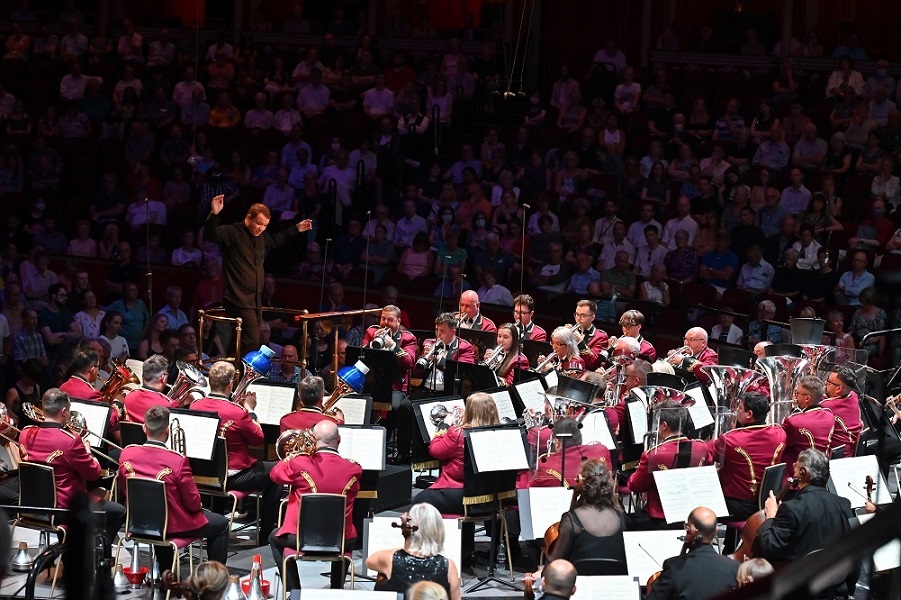
It now three years since Tredegar (above) took to the Royal Albert Hall stage with the National Orchestra of Wales for the world premiere of Gavin Higgins’ ‘Concerto for Brass Band and Orchestra’ conducted by Ryan Bancroft – followed by their own ‘Late Night’ Prom appearance under Ian Porthouse.
Although there is no definitive endorsement of a return soon, there are signs that the doors are beginning to open at Broadcasting House once more. Jackson also knows about brass bands and the composers who have worked successfully with them.
Orbital
The recent announcement of Radio 3’s support for the commission of a new work, ‘Orbital’ by Richard Blackford could well much more significant that many may initially think.
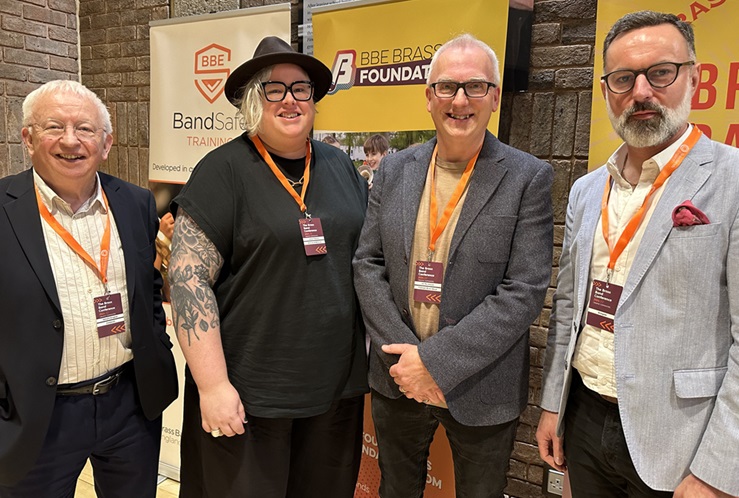
In addition, the comments made by Matthew Swann (right) of the BBC Concert Orchestra at the Brass Bands England Conference in 2024, that ‘Friday Night is Music Night’ would be looking at the possibility of featuring at least a couple of major concert performances a year were also an encouraging sign (although nothing has quite materialised as yet).
That said, unless we proactively present a compelling case to be part of this new brass banding vision, we may well just return to our little cul-de-sac of self-interest and contesting minutiae.
That said, unless we proactively present a compelling case to be part of this new brass banding vision, we may well just return to our little cul-de-sac of self-interest and contesting minutiae.
More than a glimmer
A number of well-respected composers and conductors who have already bridged the divide to the orchestral/choral world are championing our cause, whilst some bands (as shown by the recent Blackford commission - below) are also taking a proactive approach – reaching out to new audiences with more eclectic programming. Even some great old contest institutions are moving with the times.
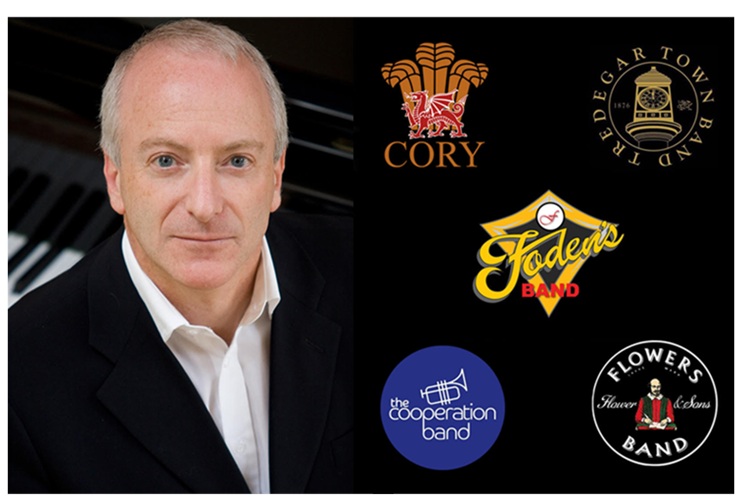
It is more than a glimmer of hope.
And whilst Sam Jackson may well have his hands full with Radio 3 and The Proms, his vision and the success it has already brought has shone an exciting light on potential new pathways to embrace as well as explore.
It's up to us though to follow his lead.
Iwan Fox



